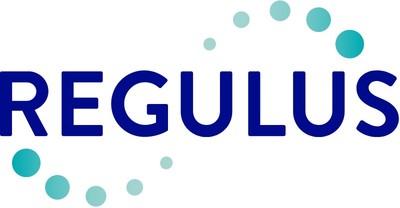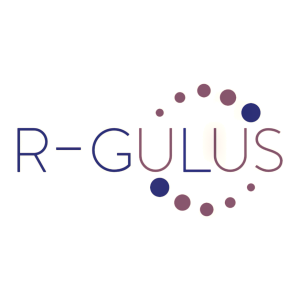Regulus Therapeutics Announces Completion of Enrollment in Fourth Cohort of Phase 1b Multiple-Ascending Dose (MAD) Clinical Trial of RGLS8429 for the Treatment of Patients with Autosomal Dominant Polycystic Kidney Disease (ADPKD)
Rhea-AI Summary
Regulus Therapeutics (Nasdaq: RGLS) has completed enrollment of 26 patients in the fourth cohort of its Phase 1b Multiple-Ascending Dose (MAD) clinical trial for RGLS8429, targeting Autosomal Dominant Polycystic Kidney Disease (ADPKD). The study has shown positive results from previous cohorts, demonstrating a mechanistic dose response based on increased urinary polycystins (PC1 and PC2). Exploratory imaging analysis revealed mean reductions in height adjusted total kidney volume (htTKV). The company plans an End of Phase 1 meeting with the FDA by the end of 2024 and expects to share topline data from cohort four in early 2025. The Phase 1b MAD study is evaluating safety, tolerability, and pharmacokinetics/pharmacodynamics of RGLS8429 across different dose levels in ADPKD patients.
Positive
- Completed enrollment of 26 patients in the fourth cohort of Phase 1b MAD study
- Positive results from previous cohorts showing mechanistic dose response
- Mean reductions observed in height adjusted total kidney volume (htTKV)
- On track for End of Phase 1 meeting with FDA by end of 2024
- Topline data from cohort four expected in early 2025
Negative
- None.
News Market Reaction 1 Alert
On the day this news was published, RGLS declined 9.36%, reflecting a notable negative market reaction.
Data tracked by StockTitan Argus on the day of publication.
"The completion of enrollment of our final cohort marks an important milestone as we near the end of our Phase 1b study. We have been pleased to see positive results from each of the prior three cohorts, showing continued evidence of a mechanistic dose response based on increase in urinary polycystins (PC1 and PC2), across cohorts. Additionally, exploratory imaging analysis has shown mean reductions in height adjusted total kidney volume (htTKV), a key measurement which we will be evaluating in the fourth cohort and in the potentially pivotal Phase 3 trial," said Jay Hagan, CEO of Regulus. "We remain on track for an End of Phase 1 meeting with the FDA by the end of 2024, and we plan to share topline data from a substantial number of patients in cohort four in early 2025."
The Phase 1b MAD study is a double-blind, placebo-controlled, weight-based dosing and an open-label fixed dose trial evaluating the safety, tolerability, pharmacokinetics and pharmacodynamics (PK/PD) of RGLS8429 in adult patients with ADPKD. The study is evaluating RGLS8429 treatment across three different weight-based dose levels (cohort 1-3) and one fixed dose level (cohort 4), including measuring changes in urinary polycystins PC1 and PC2, height adjusted total kidney volume (htTKV), cyst architecture, and overall kidney function. PC1 and PC2 are the protein products of the PKD1 and PKD2 genes and have been shown to inversely correlate with disease severity. Patients in the fourth cohort are receiving a fixed dose of 300 mg of RGLS8429 administered every other week for three months.
More information about the MAD clinical trial is available at clinicaltrials.gov (NCT05521191).
About ADPKD
Autosomal dominant polycystic kidney disease (ADPKD), caused by mutations in the PKD1 or PKD2 genes, is among the most common human monogenic disorders and a leading cause of end-stage renal disease. The disease is characterized by the development of multiple fluid filled cysts primarily in the kidneys, and to a lesser extent in the liver and other organs. Excessive kidney cyst cell proliferation, a central pathological feature, ultimately leads to end-stage renal disease in approximately
About RGLS8429
RGLS8429 is a novel, next generation oligonucleotide for the treatment of ADPKD designed to inhibit miR-17 and to preferentially target the kidney. Administration of RGLS8429 has shown clear improvements in kidney function, size, and other measures of disease severity in preclinical models. Regulus announced completion of the Phase 1 SAD study in September 2022. The Phase 1 SAD study demonstrated that RGLS8429 has a favorable safety and PK profile. RGLS8429 was well-tolerated with no serious adverse events reported and plasma exposure was approximately linear across the four doses tested. In the Phase 1b MAD study Regulus announced topline data from the first cohort of patients in September 2023, from the second cohort of patients in March 2024 and from the third cohort of patients in June 2024. Regulus completed enrollment in the fourth cohort of patients in October 2024. Patients in the fourth cohort are receiving a 300 mg fixed dose of RGLS8429 administered every other week for three months.
About Regulus
Regulus Therapeutics Inc. (Nasdaq: RGLS) is a biopharmaceutical company focused on the discovery and development of innovative medicines targeting microRNAs. Regulus has leveraged its oligonucleotide drug discovery and development expertise to develop a pipeline complemented by a rich intellectual property estate in the microRNA field. Regulus maintains its corporate headquarters in
Forward-Looking Statements
Statements contained in this press release regarding matters that are not historical facts are "forward-looking statements" within the meaning of the Private Securities Litigation Reform Act of 1995, including statements associated with the Company's RGLS8429 program and preclinical pipeline, the potential that RGLS8429 may be eligible for an Accelerated Approval pathway, potentially achieving therapeutic efficacy and clinical translation for patients, the expected timing for reporting interim or topline data, and the timing and future occurrence of other preclinical and clinical activities. Because such statements are subject to risks and uncertainties, actual results may differ materially from those expressed or implied by such forward-looking statements. Words such as "believes," "anticipates," "plans," "expects," "intends," "will," "goal," "potential" and similar expressions are intended to identify forward-looking statements. These forward-looking statements are based upon Regulus' current expectations and involve assumptions that may never materialize or may prove to be incorrect. Actual results and the timing of events could differ materially from those anticipated in such forward-looking statements as a result of various risks and uncertainties, which include, without limitation, the risk that the approach we are taking to discover and develop drugs is novel and may never lead to marketable products, that preliminary or topline results are based on a preliminary analysis of key efficacy and safety data, and such data may change following a more comprehensive review of the data related to the clinical trial and may not be indicative of future results, the FDA has not designated RGLS8429 for an Accelerated Approval pathway and such designation may not lead to a faster development, regulatory review or approval process and does not increase the likelihood that RGLS8429 will receive marketing approval, the risk that preclinical and clinical studies may not be successful, risks related to regulatory review and approval, risks related to our reliance on third-party collaborators and other third parties, risks related to intellectual property, risks associated with the process of discovering, developing and commercializing drugs that are safe and effective for use as human therapeutics, the risk that additional toxicology data may be negative, and risks related to our ability to successfully secure and deploy capital. These and other risks are described in additional detail in Regulus' filings with the Securities and Exchange Commission, including under the "Risk Factors" heading of Regulus' quarterly report on Form 10-Q available on the Company's website or at www.sec.gov. All forward-looking statements contained in this press release speak only as of the date on which they were made. Regulus undertakes no obligation to update such statements to reflect events that occur or circumstances that exist after the date on which they were made.
![]() View original content to download multimedia:https://www.prnewswire.com/news-releases/regulus-therapeutics-announces-completion-of-enrollment-in-fourth-cohort-of-phase-1b-multiple-ascending-dose-mad-clinical-trial-of-rgls8429-for-the-treatment-of-patients-with-autosomal-dominant-polycystic-kidney-disease-adpkd-302269409.html
View original content to download multimedia:https://www.prnewswire.com/news-releases/regulus-therapeutics-announces-completion-of-enrollment-in-fourth-cohort-of-phase-1b-multiple-ascending-dose-mad-clinical-trial-of-rgls8429-for-the-treatment-of-patients-with-autosomal-dominant-polycystic-kidney-disease-adpkd-302269409.html
SOURCE Regulus Therapeutics Inc.








